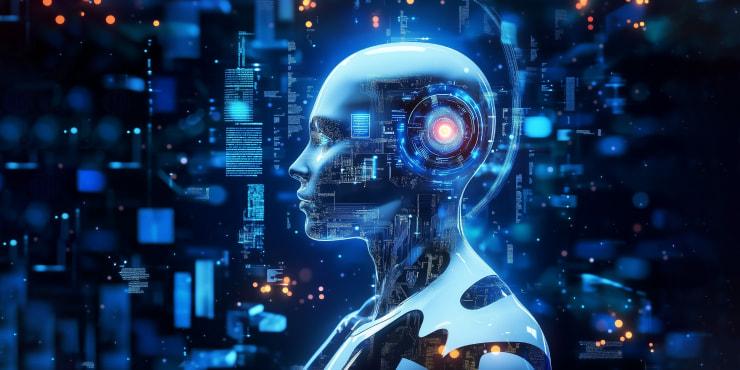The Rise of AI Tutors: key Benefits, Challenges, and Future Impact
The rapid progress of artificial intelligence (AI) technology is reshaping how we teach and learn. AI tutors—digital systems powered by advanced algorithms—are transforming education by providing tailored, scalable, and interactive learning experiences. As AI tutoring platforms become increasingly accessible, they promise to revolutionize classroom instruction, remote learning, and test preparation. In this article, we’ll explore the key benefits of AI tutors, address major challenges, share practical tips and real-world case studies, and examine the future impact of this technology on education.
What are AI Tutors?
AI tutors are software applications that apply artificial intelligence techniques—such as machine learning, natural language processing, and adaptive algorithms—to support, enhance, or replace conventional tutoring. These intelligent systems can analyse student performance, deliver personalized feedback, and adapt instructional resources on the fly. From math problem-solving bots to essay-writing coaches, AI-powered tutors cover a wide range of subjects and grade levels.
Key Benefits of AI Tutors
- Personalized Learning: AI tutors assess each student’s strengths and weaknesses, customizing lessons accordingly. This leads to accelerated learning and improved retention.
- Scalable Access: AI-powered tutors are available 24/7, making effective learning accessible to students irrespective of geographic location or socioeconomic background.
- Immediate Feedback: Instant responses to student queries empower learners to correct misconceptions quickly and move forward with confidence.
- Cost-effectiveness: Deploying AI tutors reduces the cost of private tutoring, leveling the playing field for underserved populations.
- Data-Driven Insights: AI systems aggregate data from thousands of interactions, offering educators actionable insights for curriculum development and intervention.
- Enhanced Engagement: Gamified lessons and interactive challenges keep students motivated and involved,improving overall outcomes.
These features position AI tutors as vital tools in modern education and online learning platforms.
Practical Tips for Using AI Tutors Effectively
- Choose Trusted Platforms: Opt for reputable AI tutoring services like Khan Academy, Coursera, or Duolingo, which prioritize data security and quality content.
- Combine AI Tools with Human Instruction: Use AI tutors to supplement classroom learning, ensuring students benefit from both personalized feedback and meaningful human interaction.
- Monitor Progress Regularly: Leverage the analytics provided by AI tutors to track improvement, spot challenges, and tailor interventions.
- Encourage Self-Directed Learning: Cultivate a growth mindset by allowing students to explore topics independently with AI guidance.
- Protect Privacy: Be aware of data protection policies and seek parental consent for student participation where necessary.
Challenges Facing the Adoption of AI Tutors
While AI tutors hold massive potential, several challenges must be addressed to ensure their triumphant integration into mainstream education:
- Data Privacy: AI systems require ample data inputs, raising concerns about student privacy and ethical use of information.
- Algorithmic Bias: If not carefully monitored, AI tutors may inadvertently reinforce biases, limiting equal opportunities for all learners.
- limited Emotional Intelligence: Unlike human educators, current AI tutors struggle with empathy, compassion, and the nuanced guidance needed for sensitive topics.
- Dependence on Technology: Over-reliance on AI can hinder the development of critical thinking and social skills,especially in younger students.
- Accessibility Barriers: Students in underserved regions may lack reliable internet or digital devices,hampering their ability to benefit from AI tutoring.
Addressing these challenges demands collaborative action from educators, tech companies, and policymakers.
Case Studies: AI Tutors in Real-World Education
-
Case Study 1: Squirrel AI in China
Squirrel AI, a pioneering adaptive learning platform, has helped over two million Chinese students improve exam performance. By constantly assessing student mastery, it delivers customized drills, resulting in measurable improvements in math and science scores.
-
Case Study 2: Carnegie Learning in the USA
This AI-powered math curriculum, used in hundreds of schools, tracks student progress and provides instant feedback, enabling teachers to identify and support struggling students more effectively.
-
Case Study 3: First-Hand Experience: Duolingo
Learners around the globe rely on Duolingo’s AI-driven approach for language acquisition. interactive exercises, gamified lessons, and personalized review reminders have made duolingo a leader in the online education space.
These examples showcase the versatility and efficacy of AI tutors in diverse educational settings.
The Future Impact of AI Tutors
The future of AI tutors is promising,with emerging technologies set to further enhance educational outcomes:
- Greater Personalization: Advancements in deep learning will enable even more nuanced understanding of student preferences and learning styles.
- Global Collaboration: AI tutoring platforms will bridge gaps between cultures and languages, fostering cross-border collaboration and understanding.
- Enhanced Accessibility: As the cost of AI tools continues to decrease, students in remote or low-income areas will gain access to quality educational support.
- integration with AR/VR: AI tutors may soon leverage augmented and virtual reality to create immersive, interactive learning environments.
- Support for Teachers: far from replacing educators, AI tutors will enable teachers to focus on higher-order thinking, creativity, and social-emotional development.
In short, AI tutors will play a pivotal role in creating equitable, innovative, and effective educational experiences worldwide.
Conclusion
The rise of AI tutors marks a transformative shift in the education landscape. By harnessing the power of artificial intelligence, educators and students gain access to personalized, scalable, and engaging learning that transcends traditional boundaries. While challenges such as data privacy, digital equity, and algorithmic bias persist, collaborative efforts can pave the way toward responsible and inclusive use of AI in education. As these intelligent systems continue to evolve, their impact promises to extend far beyond the classroom—empowering learners of all backgrounds to reach their fullest potential.

